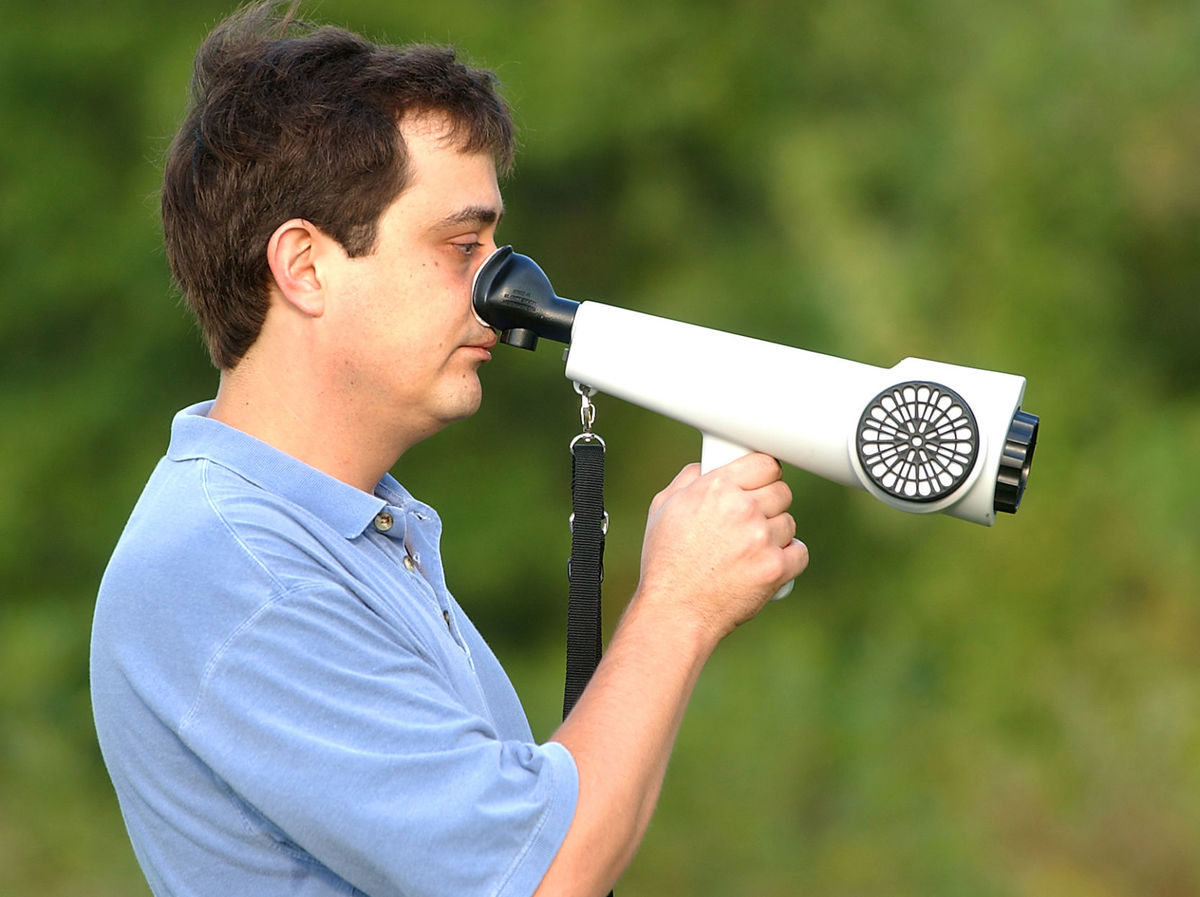NILES — Potential medical marijuana businesses in Niles could literally fail the smell test.
A provision for field olfactometer testing in the proposed zoning rules requires that a business not score higher than seven on a smell scale.
If it does — and fails to fix the problem in 72 hours — the city could revoke the marijuana business’s license.
“There’s a fabulous math algorithm that goes along with how they do this,” said Community Development Director Sanya Vitale. “There’s a meter, we go to the edge of the property line, shoot the meter at the property line and if it’s at seven or above then they might get a warning, definitely above seven.”
Vitale referred to information on the website for Nasal Ranger, a brand of field olfactometer. It costs about $2,000, she said, but the city hasn’t decided on a device, pending approval of the ordinance.
The Nasal Ranger website says its device “creates a calibrated series of discrete dilutions by mixing the odorous ambient air with odor-free (carbon) filtered air.” A “dilution to threshold” ratio is a “measure of the number of dilutions needed to make the odorous ambient air ‘non-detectable’.”
Odor control has been important to city officials since they began drafting rules earlier this year for potential medical marijuana businesses, Vitale said.
The state late last year approved a new commercial system for medical marijuana, allowing for five types of businesses: growers, processors, safety compliance facilities, secure transporters and provisioning centers or dispensaries. Municipalities are allowed to opt into the new system and set their own local rules in conjunction with state law. The state will begin accepting business license applications Dec. 15 and could issue the first licenses early next year.
Vitale said in researching local regulations, city staff talked to the city administrator in Durango, Colo., where marijuana is legal, and learned his biggest concern stemming from marijuana businesses, such as grow operations, was the odor.
Marijuana is a “smelly” plant, Vitale said, especially grown in quantities.
Niles’ proposed ordinance outlines requirements for ventilation systems “to prevent any odor of medical marihuana (sic) off the premises of the business.” Growers and processors in particular will have odors to control, said Vitale, and maybe to a lesser extent dispensaries. She noted that no smoking or other consumption of marijuana products is allowed at dispensaries.
The field olfactometer test offers a “numeric quantification of the smell,” which the city hopes can be useful in enforcement of the odor rules, said Vitale.
Not downtown?
City officials are leaning toward taking the downtown area off the table altogether for the location of any medical marijuana business.
Dispensaries are the one type of business that were proposed to be allowed downtown.
“I won’t vote for any ordinance if we’re going to put the things downtown,” said council member Bob Durm at a recent council meeting, in a discussion about dispensaries. “I don’t think they belong in our downtown.”
Vitale said eligible area for medical marijuana businesses downtown is greatly limited because of the presence of the Niles District Library on Main Street. The proposed ordinance incorporates a state law that requires a 1,000-foot drug-free zone around any school or library, she said.
And now Vitale is recommending that the planning commission approve two redevelopment zones downtown as part of the city’s master plan. The designation of the zones could make the city eligible for various funding opportunities, she said, some of which could be federal. To make sure the areas are eligible for federal money, the plan is to exclude medical marijuana businesses.
She described the proposed redevelopment zones as running between River and Fifth Street and Wayne and Broadway, and down Third Street from Broadway to Bond.
Niles would allow dispensaries along the 11th Street commercial corridor and in the industrial park or on industrial property, where the four other types of medical marijuana businesses could locate. Only two dispensaries are proposed for the city, which council members seemed to agree on as a good number.
The number of the other types of businesses would not be capped.
Council members voted 5-3 to raise the number of medical marijuana structures allowed in the industrial park from two to four. A motion to uncap altogether the number of sites allowed in the industrial park failed 6-2.
Council member Daniel VandenHeede, who voted against both motions, said he was “strongly in favor of starting slow on this.”
credit:southbendtribune.com

